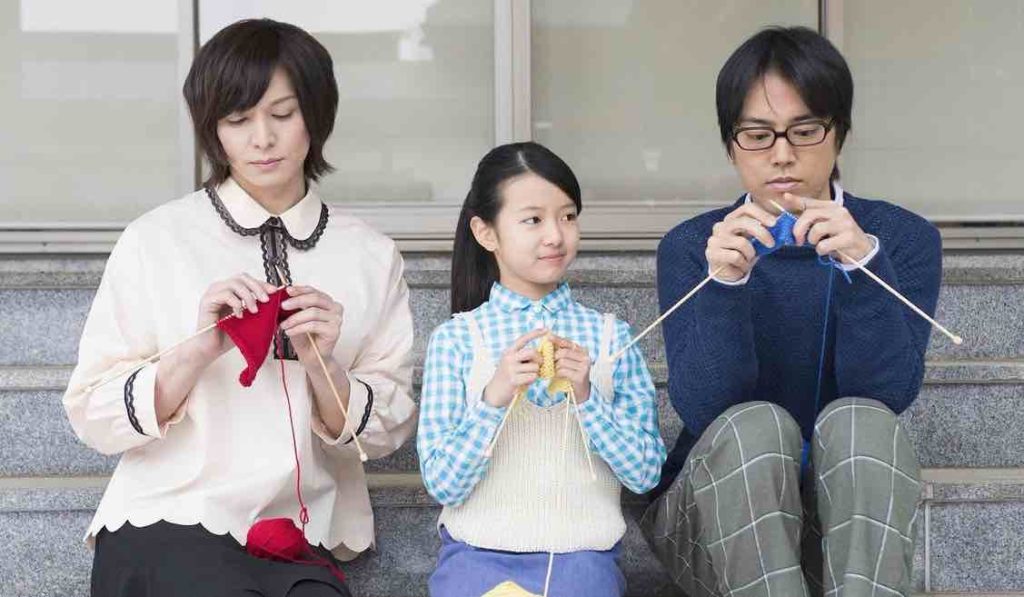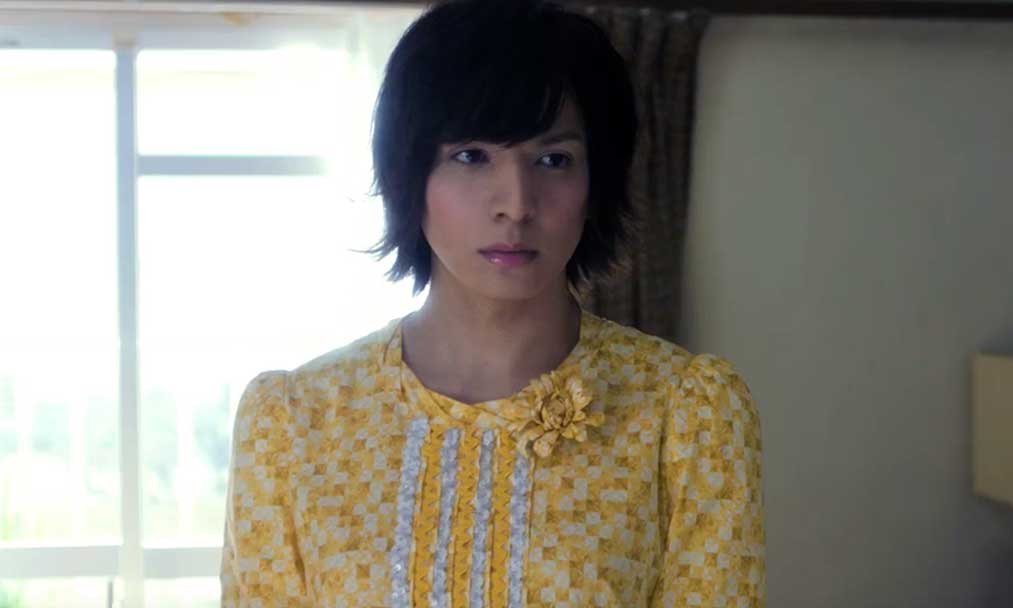Trans stories are now being told. Tragic stories. Painful stories. Frightening stories, yes. But the film industry finally seems to be evolving past the trans-as-victim genre of “Boys Don’t Cry,” “Soldier’s Girl,” and “Kiss of the Spider Woman,” budding into newer, greener territory with more complete illustrations of trans and genderqueer characters. Heartwarming stories. Romantic stories. Even parental stories.
“Close-Knit” graced Seattle’s 2017 TWIST Film Festival, and joins other contemporary films like as a beautiful examination of trans identity when it is met with acceptance and allegiance.
The Japanese film weaves together glimpses of the past and present, spinning a fully-developed yarn of a family striving to create itself. Rin Kakihara debuts as Tomo, an 11-year-old girl whose negligent mother has abandoned her yet again. While Mom quits her job to pursue another new man, Tomo visits her uncle Makio (Kenta Kiritani) at work. When she purchases enough manga to last her for months, Makio understands that his sister has jumped ship once more, and he offers to let Tomo stay with him.
But this time, things are different. Makio now has a girlfriend, the charming and competent Rinko (Tôma Ikuta, a cisgender male actor). She’s welcoming, she’s attentive to skeptical Tomo, and as Makio explains to his niece, she is trans.
In the fashion of Japanese film, melodrama ensues as the stakes elevate for all parties involved. The interwoven storylines between each of the characters culminates in a fraught climax as Tomo’s mother finally shows up and demands her daughter return with her. While the film doesn’t follow the most gratifying string to its end, we’re given bittersweet closure and trust that everything will turn out alright for this young girl and the amazing woman who wanted more than anything to adopt her.
The story is unfailingly convincing for several reasons. The first is its brisk narrative development. Without dawdling, the screenplay efficiently and thoroughly shows us each character’s motivations and true natures. Through several recurring themes, the audience builds a familiarity with these characters just as they build further familiarity with one another. Unsurprising in a film about challenging gender identity and traditional family structures, director Naoko Ogigami stitches in provacative-yet-hilarious motifs of domesticity, phalluses, and overwhelmingly, breasts.
Secondly, the cast themselves deliver performances of which they can truly be proud. Young Kakihara gives an impressive depth and honesty to Tomo while Ikuta shines as lovable, complex Rinko. The actors in the film fully commit to their roles and earn the audience’s rapt attention.
And thirdly, the story’s satisfyingly quick cadence is balanced well with Ogigami’s intimate direction. “Close-Knit” features many scenes taken entirely in one shot, with a variety of sets and angles that keep the cinematography fresh, tender, and engaging.
But most of all, the film is refreshing in its dignified portrayal of a many-layered trans leading lady. We are treated to her childhood character development and learn that Rinko was raised by a supportive, affirming mother. When a young, tearful Rinko appears in a boys’ school uniform and confides in her mother “I want breasts,” Rinko’s mother takes a long beat and replies, “Of course you do. After all, you’re a girl.” Adult Rinko is written as a beloved woman with a boyfriend who loves her without fetish or shame. She’s a full-time employee in a nursing home—charged with caring for Makio’s mother, as a matter of fact—and Ogigami gives the character permission to have a range of emotions. Trans women are often depicted as sex workers, victims of abuse and murder, and subject to addiction. While these stories are important and there is no shame in telling them, “Close-Knit” breaks new ground with Rinko and other trans women who are out, self-assured, intricate, and yes, maternal.
Perhaps the film’s only unconvincing aspect is how flawless Rinko appears to be. She literally seems like a perfect human. She’s smart, kind, loving, resilient, and though she enjoys her beer, is never even seen drunk.
Though the film challenges gender identity, it does nothing to challenge gender roles. The story is strictly binary and clings firmly to the concept of “man” and “woman,” with Rinko “convincing” the audience she’s a “true” woman by cooking, knitting, doting on her man, caring for his mother, and ultimately mothering a child. This facet of the story might appeal to a deeply heteronormative demographic, but will leave queer audiences wanting just a bit more. Furthermore, while Ikuta does an exceptional job with his role as Rinko and is unquestionably a vast talent, there are many gifted trans actors who are more than capable of playing trans characters.
With Ogigami’s demonstrated mastery of filmmaking and her profound artistry in bringing a well-rounded trans character to life, she poises herself to be a true champion of transgender representation in film as she continues to challenge gender roles and render queerer stories, unencumbered by society’s simplistic binary paradigm. She’s a director to watch.
Seattle’s 2017 TWIST Film Festival will continue through Sunday October 22nd.























